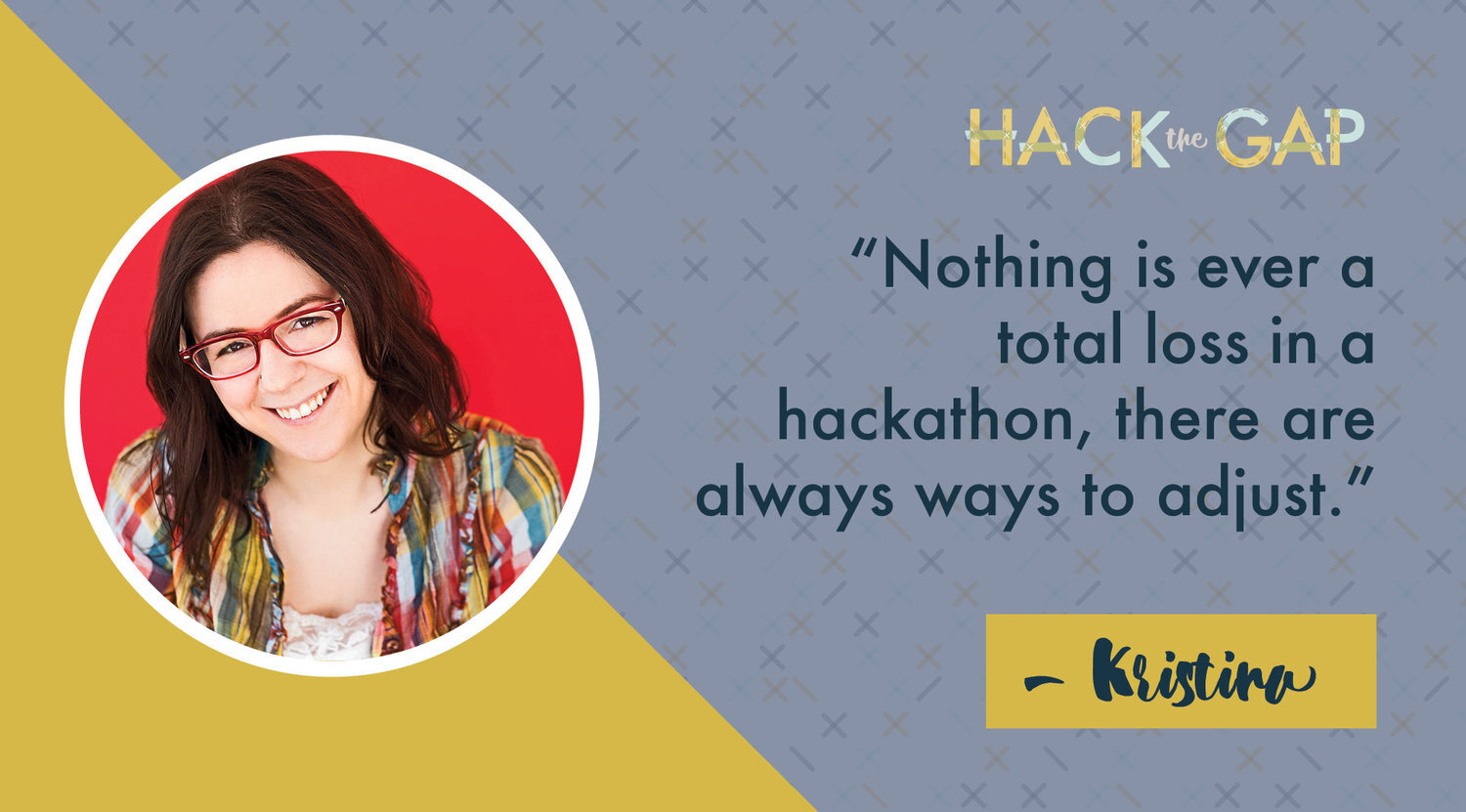Hackers Gonna Hack: Meet Kristina Durivage
A series where we feature past and present Hack the Gap hackers and supporters and share their experiences—what they want others to know about the event, and what they’re doing now.
WHAT IS YOUR CURRENT JOB TITLE?
I'm a front end engineer at SmartThings.
WHAT YEAR WAS YOUR FIRST HACK THE GAP?
2015 and 2016 I went to Demo Day to see the presentations. 2017 and 2018 I was a mentor!
WHAT WERE YOUR EXPECTATIONS GOING INTO YOUR FIRST HACK THE GAP?
Hackathons can be frustrating no matter what, and it’s easy for the scope of what you want to work on grow into something you won't be able to deliver on. My expectations coming in to watch presentations were that I'd see teams disappointed at not being able to get done what they wanted. I did not see that—instead I saw teams that were super energetic with members that did what they needed to demonstrate their projects. There's always stuff you want to do that you can't get done in a weekend, but no one seemed frustrated or down about this, instead they adjusted their plans and were enthusiastic about what they did do.
WHAT WERE YOUR THREE BIGGEST TAKEAWAYS FROM HACK THE GAP WEEKEND?
If you're coming in with an idea, think of adjustments you can make if it will require technical expertise you can't pick up in a weekend and may not find a group member for. For example, if your idea requires computer vision and you can't find someone who knows it already, and looking at stuff out there seems out of reach for your team, how could you solve this problem without it? Could you change it up so people identify things for you?
When you're working on a project, don't be afraid to communicate if you need help or don't think you will be able to perform your task. You have teammates and mentors there to help you, and if the challenge is something that is a blocker, your team can adjust to figure out alternative plans. Nothing is ever a total loss in a hackathon, there are always ways to adjust.
Stuff will happen during presentations. You may get nervous, things that *just worked 5 minutes ago* suddenly won't, or something else. Remember that the everyone there is on your side and understands what you're going through. The judges want to see you succeed, the audience wants to see you succeed, and there's a good chance that everyone watching has been a part of a presentation that had the same type of issues as you're facing. It's not a big deal. Try not to panic, think about what might be going on, explain what you can, try turning it off and on again (whatever that means for your project) and whatever else. It might help to have someone speaking and someone in charge of handling the project itself, and it always helps to practice.
IF YOU HAD TO EXPLAIN HACK THE GAP TO SOMEONE WHO HAS NEVER HEARD OF THE EVENT, HOW WOULD YOU DESCRIBE IT?
Hack the Gap is a weekend where women come together to pitch ideas, work on solutions, and present those solutions to their community.
WHAT WAS YOUR FAVORITE THING ABOUT HACK THE GAP?
Usually people on the fence feel intimidated, like they wouldn't have enough to contribute and would be a detriment to a team. I don't ever see that at Hack the Gap. The teams that form to work on a hackathon idea adjust the solution to take advantage of the various strengths the team members have, and the work that gets divided up plays to the strengths that people bring to the table. Even if you're learning and you face a challenge, ask questions or otherwise research what you want to do—you can provide something to the team. Ideas need different backgrounds and perspectives to be well-rounded and that's something everyone can bring to a hackathon.

